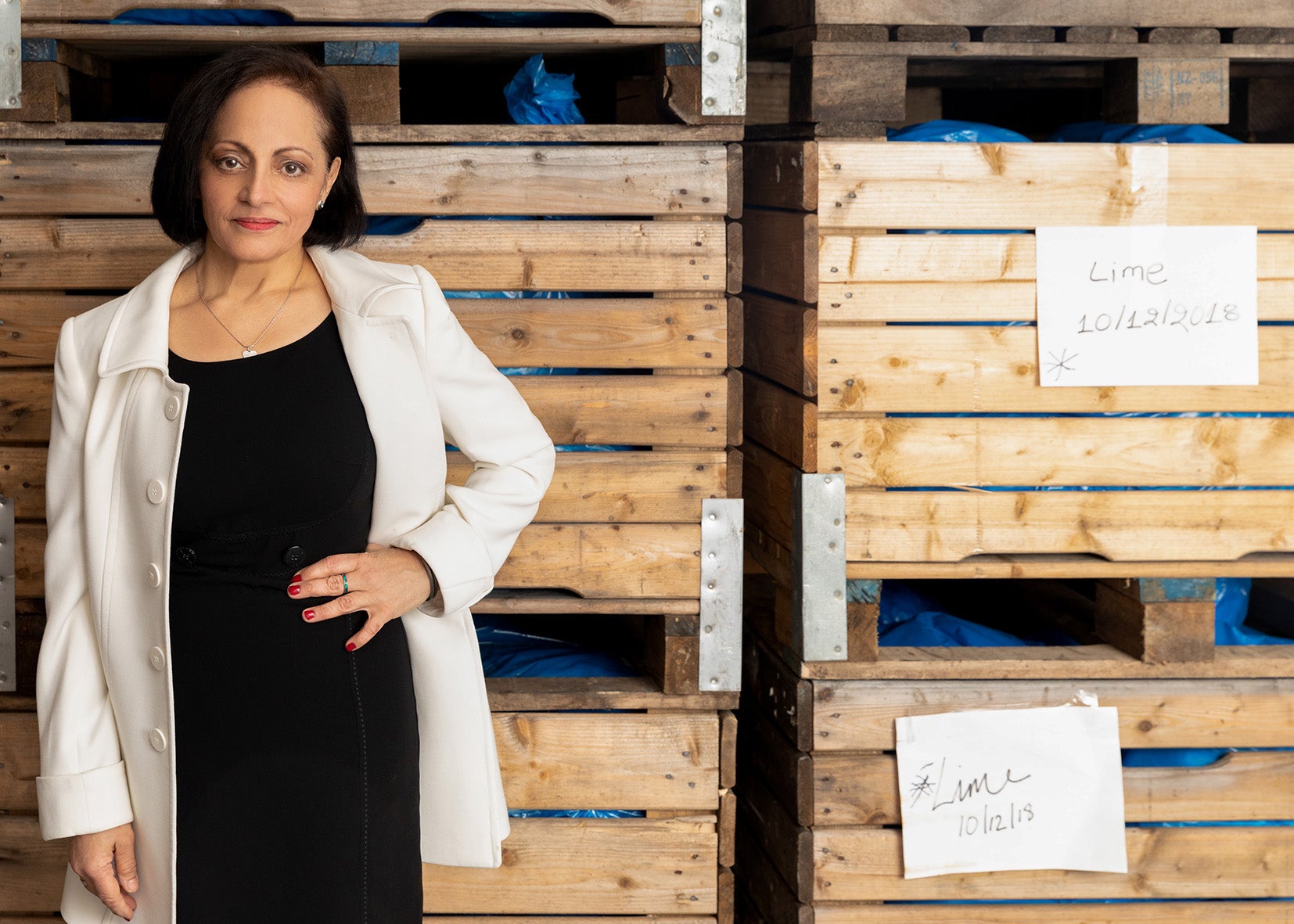‘It’s just madness’: UK manufacturer battles deluge of Brexit bureaucracy
Nimisha Raja did all she could to prepare her business for 1 January but the upheaval is already taking its toll

Your support helps us to tell the story
From reproductive rights to climate change to Big Tech, The Independent is on the ground when the story is developing. Whether it's investigating the financials of Elon Musk's pro-Trump PAC or producing our latest documentary, 'The A Word', which shines a light on the American women fighting for reproductive rights, we know how important it is to parse out the facts from the messaging.
At such a critical moment in US history, we need reporters on the ground. Your donation allows us to keep sending journalists to speak to both sides of the story.
The Independent is trusted by Americans across the entire political spectrum. And unlike many other quality news outlets, we choose not to lock Americans out of our reporting and analysis with paywalls. We believe quality journalism should be available to everyone, paid for by those who can afford it.
Your support makes all the difference.Nimisha Raja is one of thousands of UK company bosses currently battling with a huge increase in administration and paperwork due to Brexit.
Despite doing all she could to prepare her business, Nim’s Fruit Crisps, the upheaval is already taking its toll.
“I’m supposed to be running this business, I'm supposed to be making all the decisions and managing people,” Raja says. “Now I'm spending almost all of my time on procurement and just making sure I can get fruit on time.”
The company buys fresh fruit from Colombia and Costa Rica via EU suppliers in Amsterdam and manufactures dried fruit and vegetable crisps for UK retailers and for export.
Like many manufacturers she is seeking to minimise the impact of extra costs and red tape. Nim’s is looking at rerouting its supply chains, buying produce from UK distributors where possible.
Disruption is especially problematic because some fruit the company buys and then air dries to make its products will soon be out of season. Customers are also wary of rising prices as a result of Brexit.
“I was supposed to get blood oranges but had an email from my customer saying the cost of them is too much we're not going to bother this year,” says Raja.
Logistics companies that ship Nim’s fruit crisps to customers are unsure of the rules as too. Before agreeing to transport Raja’s products, a haulier demanded to see the original food safety (“phytosanitary”) certificate from the fruit producer.
“I told them that’s impossible because they are in Colombia. I just dry the pineapples and make crisps, I don’t grow them in the UK.
“They told me that's what they are being asked for [by EU authorities] at the border and if we don't have it we won't take your product.
“It's just madness.”
“The problem is we haven't had a transition period. We heard over Christmas that we had a deal and were relieved because we didn't have tariffs which was the biggest thing we were worried about.”
Government support has also been lacking. "I’ve tried calling HMRC about our tariff codes because there didn't seem to be a relevant one for our fruit tea but there was a very long wait.
“I emailed them 10 days ago and haven't heard back. I've had to take all of those products off our export price list for now.”
Nim’s fruit will have to absorb the extra costs for now, says Raja, who is concerned that raising prices will mean losing her customers. But the company cannot go on operating on much thinner margins forever.
Raja is far from alone. Manufacturers trade body Make UK has said some members have had orders cancelled by EU customers unwilling to deal with the delays and extra hassle that have come with Brexit.
Food producers have been amongst the businesses most severely affected with lorry loads of meat and fish perishing because of delays getting goods into the EU.
David Lindars of the British Meat Processors Association says the blame lies partly with “antiquated” EU processes for checking food safety certificates.
“Too many of our producers have had to dispose of goods because of that,” he says.
Lindars predicts that overly bureaucratic systems which require multiple customs declarations for each lorry load of food products will destroy many small food producers who sell specialist goods online.
“If you’re in the office of a fruit packer or you’re selling fish or meat, and your customer rings up and asks for another pallet of, say, oysters, you can’t do it because you need to notify customs 24 hours in advance.
“That just-in-time business that we’ve built up over a long time is gone now. It’s gone forever.”
Not everyone is quite so gloomy about Brexit. “It’s a learning curve,” says Craig Kirby, veterinary adviser to the Association of Independent Meat Suppliers.
The number of calls he has received asking for help completing health certificates required on animal product exports has dropped “significantly” this week.
“Business changes to adapt and it will, it will streamline itself - because they do want our product in mainland Europe. We are in daily conversations with experts in the Hague and Paris and Dublin about resolving the issues we are seeing.”

Join our commenting forum
Join thought-provoking conversations, follow other Independent readers and see their replies
1Comments